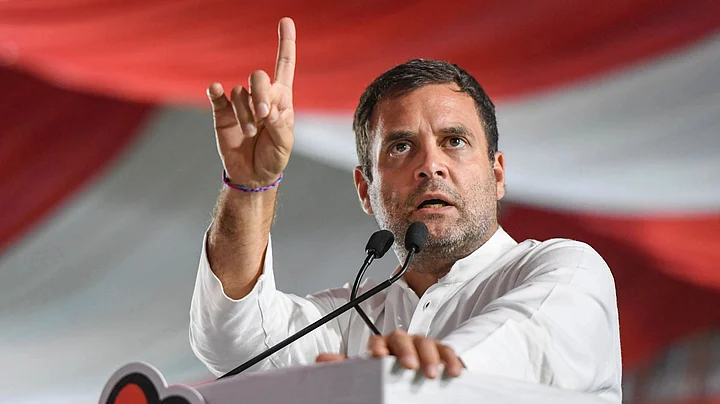One of India’s oldest universities, the Osmania University in Hyderabad, has refused to approve the visit of Congress leader Rahul Gandhi on campus for a ‘non-political’ event, which was scheduled for Saturday, 7 May.
Although the Osmania University Executive Council has not refused the permit officially, reports of the university’s decision has triggered a fury among students, some of whom moved the Telangana High Court the same day to urge the court to permit the Congress leader’s visit.
The university’s reported decision has led to protests on campus. Several Youth Congress leaders protested at the Osmania University Arts College on Saturday while the Akhil Bharatiya Vidyarthi Parishad (ABVP) and students’ associations affiliated with the Telangana Rashtra Samithi (TRS) organised counter-protests.
Meanwhile, the Congress blamed the TRS-led state government of playing a hand in discouraging the top institution to stop Gandhi’s visit.
University Bars All 'Political' Meets on Campus
Congress leaders said on Sunday, 1 May, that they applied for permission for the ‘non-political’ event on 23 April.
However, an administration official told The Indian Express that the Executive Council had adopted a resolution almost every year since 2017 to bar all non-academic activities and political meetings on campus. This came after the state High Court's order in 2016 directing the state government to not allow political and public meetings on the university’s premises.
The HC gave its order based on the complaint of several students who claimed that political meetings disrupted classes.
Manavta Roy of the Telangana Nirudyog Vidyarthi Joint Action Committee (JAC) said that the administration had not yet informed students of its decision in writing.
“We are expecting the administration to say something on Monday,” he added.
Other university officials said that a political leader’s visit to the campus cannot be a non-political programme.
(With inputs from The Indian Express.)
(At The Quint, we question everything. Play an active role in shaping our journalism by becoming a member today.)
